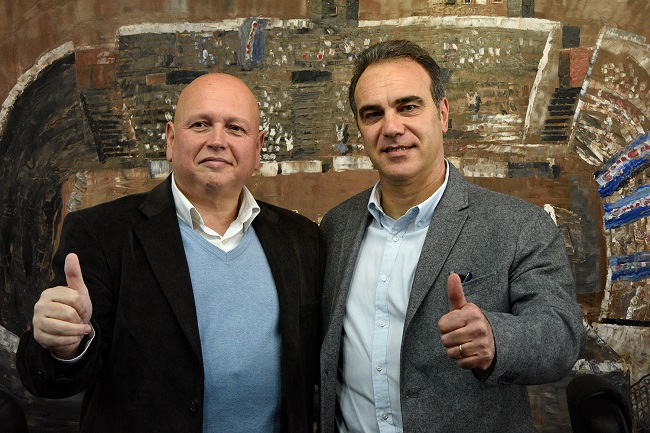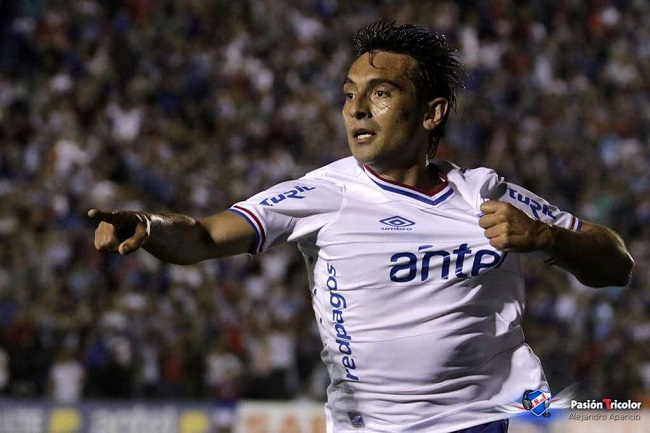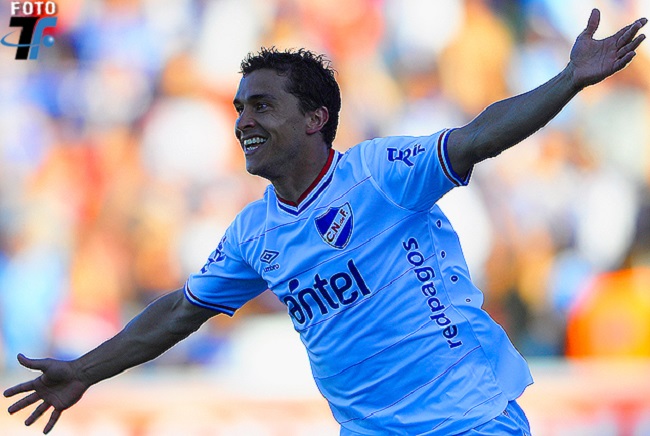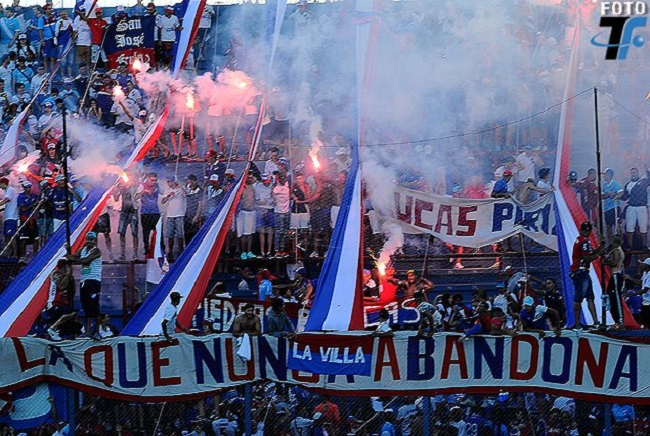Hello fans! El Bolso is here one more time in this terrible, horrible, no good, very bad 2016. For Pete’s sake, let’s end the year on a good note, shall we? Let’s talk about Nacional, the King of the single round tournaments.
A Rare Occurrence

Single round tournaments are very rare in Uruguay. Usually the league is resolved over a home and away round robin, as in much of the civilized world. It’s the ultimate balanced schedule: a team gets to play every other team exactly twice and split the home field advantage. It makes sense from a sporting point of view and fits neatly into the yearly calendar (er… most of the time). There was a point in the early days of professionalism where the league was played in 3 rounds, because there weren’t enough teams to fill out the calendar with 2. There were also the days of the Clasificatorio in the early 00’s, which, let’s just pretend that never happened. Historically it has been 2 rounds.
In fact, in over 115 years of Uruguayan domestic soccer there have been 4 league tournaments with less than two rounds. The first one was in 1948, when the teams played 10 out of 18 scheduled games before a players strike caused the league to shut down. Nacional was the only unbeaten team at the time and led Peñarol by a single point; however, no title was awarded that year. It would take until 1989 for it to happen again: that was a busy year, what with the qualifiers for the 1990 World Cup and the 1989 Copa América going on. Could a competent organization have figured out a way to play a full 13 team, 24 game schedule? Of course it could have, but we had AUF, so they fit a single round tournament around everything else. That was the year Progreso, a humble team from the La Teja neighborhood, won their first an only title, with Nacional 5 points behind in 2nd place. I have to say, for a team that spends most of its time in the second division (or on its way there), winning a league title was pretty cool. Also pretty cool: Progreso’s president at the time was one Tabaré Vázquez, whom you might know as the guy who has run the entire country for 2 of the last 3 Presidential terms.
Then there are the calendar shifters. Back in 2005 AUF decided that living in the Southern Hemisphere was no excuse for failing to conform to European soccer schedules, so they decided to shift from the traditional Feb-Dec schedule to a Aug-Jun one. Never mind that in Uruguay that means having the league finals in the middle of winter; they felt they needed to sync up with the big boys. But how to do this? Would they shut things down for 6 months? Spread a tournament over a year and a half? No! All you need to do is have a special, one round league tournament that only lasts 6 months and presto, you can now pretend you’re part of UEFA. So that is what they did: the 2004 league championship was followed by the 2005 Uruguayo Especial, which was followed by the new and improved (well new anyway) 2005/06 league. Nacional won the title that year: they finished the regular season tied with Defensor, but because the Violetas were upset about how Nacional had gotten to that point (a last-minute game winning penalty kick in their last game) they chose not to show up to the special Especial playoff, handing the title over to the Tricolores.
Fast forward 11 years, and the European calendar is no longer in favor in Uruguay. It turned out not to work well with CONMEBOL’s international club tournament schedule, plus THE LEAGUE FINALS HAPPENED IN THE MIDDLE OF FUCKING WINTER. So AUF did the only reasonable thing: they schedule another 6 month tournament, the 2016 Especial, to bridge the gap between the 2015/16 league and the 2017 league. Do I need to tell you that the games started 3 weeks late because of security concerns? Of course not. Do I need to tell you that the scheduling was horrendous, as in Nacional having to play 6 of their first 7 games on the road, and somehow snagging road games against all of the best teams in the league? Nope. Do I need to tell you that the tournament itself was a complete disaster? No, because you already knew that. AUF gonna AUF, and they AUF’ed hard this time around.
Anyway, it was a horrible 6 months, except for the ending. Just like 11 years ago, the Tricolores came up victorious in this one, with some interesting wrinkles along the way; we’ll get into that next.
Back to the Future

Peñarol tooled up big time to go for a repeat title (something they have not accomplished since 1997). They lost Diego Forlán to the Indian league (rupees talk and aging superstars walk), but brought in 11 new signings and were the “smart” money pick to win the title. Nacional, on the other hand, made a few strategic moves but mostly kept their 2015/16 squad together, hoping familiarity and repetition would win out over flashy new talent. Some of the new guys worked out rather well: forward Hugo Silveira came from Cerro and quickly became an assist machine, winger Kevin Ramírez‘s speed became a permanent headache for opposing defenses, midfielder Tabaré Viudez solidified the attack in his second stint with the Tricolores, and Colombian defender Sergio Otálvaro was solid in back and a significant offensive weapon when racing up the wings. Midfielder Sebástian Rodríguez came over from Liverpool and was decent enough in limited time. Look, it’s hard to crack that starting midfield. He did the best he could with the opportunities he was given.
And then there was Brian Lozano: the former Defensor Sporting offensive midfielder, on loan from the Mexican League, was supposed to be the key signing of the transfer season and he was absolutely horrendous. It was actually quite impressive to see him rack up so many ruined counterattacks in as few minutes as he played. For some reason he kept coming into games as a sub, and each time El Bolso cringed in despair. Seriously, if you have a kid who wants to learn how to play soccer, queue up the second halves of Nacional’s 2016 Especial games, have her follow #24 around the screen, and tell her to do THE EXACT OPPOSITE of what she sees. Geez Louise! Lozano was recovering from an injury this past offseason, and for his sake I hope they find something else physically wrong, because if he can’t bounce back significantly he’ll be frying potatoes at the downtown Montevideo McDonald’s soon.
The team made 2 other acquisitions: first, they hired Martín Lasarte to replace Gustavo Munúa as coach. Lasarte’s history with the Tricolores runs deep: he was a member of the 1988 Libertadores and Intercontinental champion squad, the last Nacional team to win a major international tournament. He also coached the team for 2 seasons a decade ago, winning both league titles. One of those, coincidentally enough, was the 2005 Especial. I guess the contract committee was hoping to rekindle the old magic! The second signing happened right before the end of the transfer period, as the team brought offensive midfielder Martín Ligüera back for a 4th stint with the club. The crafty veteran, who turned 36 a month ago, had just had a pretty damn good season with Fénix and was basically brought in to fill the Álvaro Recoba role: mentor the kids, come in off the bench, pull off some shit none of the young’uns have ever seen live before, and win games. El Bolso’s dad hated the signing because it’s the typical “sign this old guy off the scrap heap because that’s all we can afford” move that plagues Uruguayan soccer, but I really thought Ligüera could be a difference maker. He’s the type of guy you don’t want to throw out there in international competition because he just can’t keep up with real talent, but in the slower Uruguayan league he can make some moves.
Playing Catch-up

Of course Nacional started the tournament on the wrong foot, losing 2 of their first 3 games to Danubio (week 1) and Liverpool (week 3). The competition got easier, however, and the Tricolores ran off a streak of 7 consecutive wins; Ligüera scored in 4 of those (often the decisive goal) as he came off the bench to become one of the team’s leading scorers. Unfortunately, Danubio also kept on winning, so the Tricolores had to share first place with the Franjeados for most of the season. Then came a downturn: a scoreless tie against Cerro and a 3-2 loss at Defensor, a game Nacional was winning 2-0 20 minutes in! However, Danubio matched the Tricolores in both those weeks: they tied against Juventud 1-1, then lost to Wanderers on a 90th minute goal by former Tricolor Ignacio “Nacho” González (who actually came up in Danubio’s youth teams and starred at the club early in his career). That led into Derby week, where Nacional would play Peñarol and Danubio would face traditional rival Defensor Sporting.
Danubio could only manage a scoreless tie against the Violetas, and we’ve already discussed what happened in the other game. The league disciplinary committee ended up giving Nacional a 3-0 walkover win in that one (although they declined to punish Peñarol further, which is an absolute disgrace), and that left the Tricolores all alone atop the table. Much rending of garments and gnashing of teeth followed: Danubio’s coach and President whined about losing the title at the league desk instead of on the field, as did muckety-mucks from a suddenly surging 3rd place Wanderers squad (I’m not even going to comment on the theatrics coming from Manya President “Panama Papers” Damiani). Hey look, why don’t you go complain to the guy THROWING PROPANE TANKS ABOUT. It’s not Nacional’s fault that Manya fans make it impossible for their team to actually play games.
Anyway, once all the crying died down (somewhat) there were still games to be played, and Nacional kept up their end of the deal by beating Juventud 2-0, with Ligüera providing the second goal (2 minutes after coming in off the bench yet again). Danubio lost yet again, this time 4-1 to Fénix. Coincidentally, all 4 Fénix goals came from former Nacional players, so hooray for having a strong alumni network! Wanderers beat the holy hell out of mathematically relegated Villa Española, so that going into the final week of the season Nacional had a 3 point lead on the Bohemios, while Danubio, the team that led the league over the first 12 weeks, fell 5 points behind and lost any chance at the title. Look, Danubio fans, you can whine all you want about the Clásico outcome; your team lost 10 of 12 points during the tournament’s key stretch, and that’s why the ended up on the outside looking in.
So it came down to Sunday: in 3 simultaneous games, Wanderers played Rampla Juniors, Nacional played Boston River (just… go with it), and Danubio faced Liverpool. Wait, why was Danubio involved? Well, it turns out the Mexican league dropped its teams out of the Libertadores at the last second (don’t worry, they’re coming back in 2018), so Uruguay got an extra spot, and AUF decided it would go to the best Especial team without a berth. So Danubio could not catch Nacional, but they could pass Wanderers and sneak into the Libertadores. As for Nacional’s rival, Boston River (I mean… just pretend it’s OK), this is a team playing in its first ever season in the First Division (they were the last team promoted last year), and they’ve done an excellent job, easily avoiding relegation and climbing high enough on the table to qualify for next year’s Sudamericana. Well done!
The game itself went pretty much according to plan. Nacional took things easy, knowing a tie was all they needed, and their situation improved 4 minutes in when Rampla took the lead against Wanderers. The Tricolores were clearly the superior team in the first half but could not translate that domination into good chances. The game was scoreless at the half, and that was good enough (Wanderers had managed to tie their game by then). The second half got off to a great start though: 2 minutes in, Ramírez made a strong run through the middle of the field and took a shot on goal from outside the box; it wasn’t the strongest kick, but the Boston River keeper could not contain it, and Sebastián “Papelito” Fernández was standing right in front of him, ready to tap the ball in. And that was that, fans. Nacional could have scored a couple more goals, as Ligüera came on in his usual sub role, but the 1-0 final score was more than enough to give the Tricolores their 46th league title. Wanderers could only manage a tie, but that was enough to give them the Libertadores Cup spot. Danubio heads to the Sudamericana (along with Liverpool, Defensor Sporting and Boston River), where they will try to add to their record streak of 8 consecutive first round eliminations.
A Strange Tournament

So Nacional is your new champeen, fans, cementing their reputation as the kings of the one round tournaments. They did it by beating the teams you’re supposed to beat: against the bottom 9 teams in the table, Nacional went 9-0-0. In their games against the best 6 squads, the Tricolores managed only 2 wins (early on against Wanderers, in a game that ended up giving them the margin they needed to hold off the Bohemios, and of course in that last game against Boston River), 2 ties, and 2 losses. In the end that was good enough for first place, and that’s all that matters. The team was a beast at home, winning every single point in play at the Parque Central, 7 wins in all. Holding serve at home and stealing points on the road? What other team do we know that is using that same formula right now?
Alright, so you want strange? For the first time in a long time, a Uruguayan league title win does not come with CONMEBOL tournament spots: Nacional already qualified for the 2017 Libertadores as runner-up in last season’s annual table, and the Especial was only used to hand out Sudamericana berths, which the Tricolores were not eligible for (CONMEBOL got into the calendar shift game as well, so the 2 tournaments will now run concurrently so a team can only enter one or the other). So the league winner gets nothing but a trophy (which is nice, I mean it’s a very nice trophy, but international competition is where the hard money comes from).
For the Marty McFly fans out there, consider this: Nacional won the second calendar adjusting tournament 11 years after winning the first one, and they did it with the same coach (Lasarte) and the same top scorer: Ligüera’s 6 goals tied him for the team lead with Papelito, and made him the league’s 5th best scorer, which is exactly what he was in 2005. How weird is that? Ligüera has now won league titles in each of his 4 stints at Nacional (98, 05, 09, and 16). Lasarte has now coached Nacional in 3 official league tournaments and has 3 titles to show for it, one less than the Nacional record. Maybe in 2027, when AUF decides to shift to the Chinese calendar (because reasons) the Tricolores can drug BA’s milk and send Face and Amy into whatever old folks’ home Lasarte and Ligüera are living in so they can go for one more glorious ride. El Bolso loves it when a plan comes together.
That’s all for me, folks. I have some thoughts on the MLS Cup final that I will try to share later this week, but just in case I can’t, I will leave you with a little Christmas cheer. See you in 2017!
Cover image courtesy of Tenfield Digital.
- The Charrúa Report: On the Right Foot - March 14, 2017
- The Charrúa Report: Campeones! - February 14, 2017
- The Charrúa Report: 48 Is Enough - January 11, 2017
- The Charrúa Report: Nico and the Sounders - December 14, 2016
- The Charrúa Report: King of the Single Rounders - December 12, 2016
- The Charrúa Report: Senseless - December 6, 2016
- The Charrúa Report: The Bum’s Rush - November 28, 2016
- The Charrúa Report: A Bump in the Road - November 16, 2016
- The Charrúa Report: Is It Priceline Time? - November 12, 2016
- The Charrúa Report: Closer to Fine - October 13, 2016

